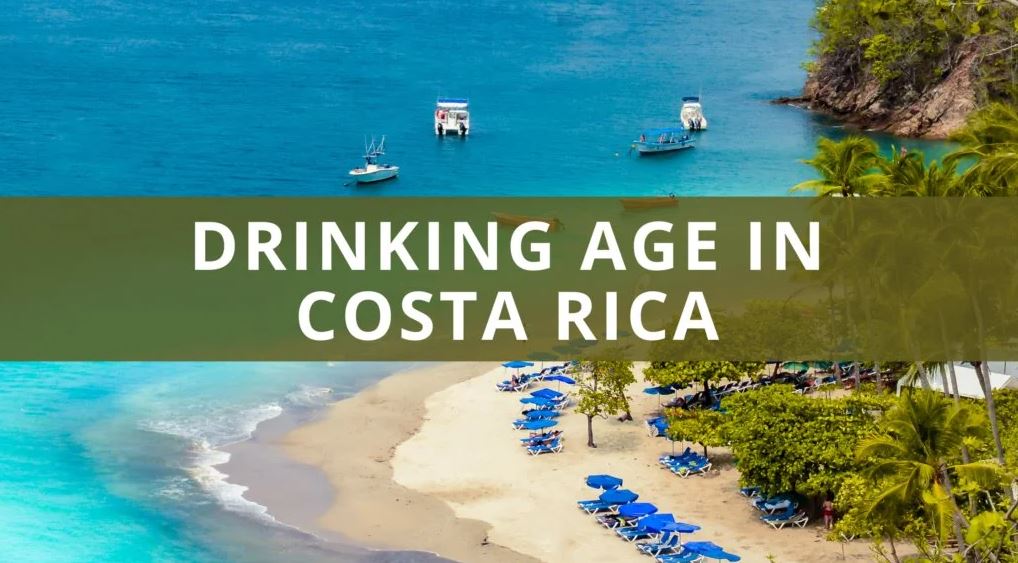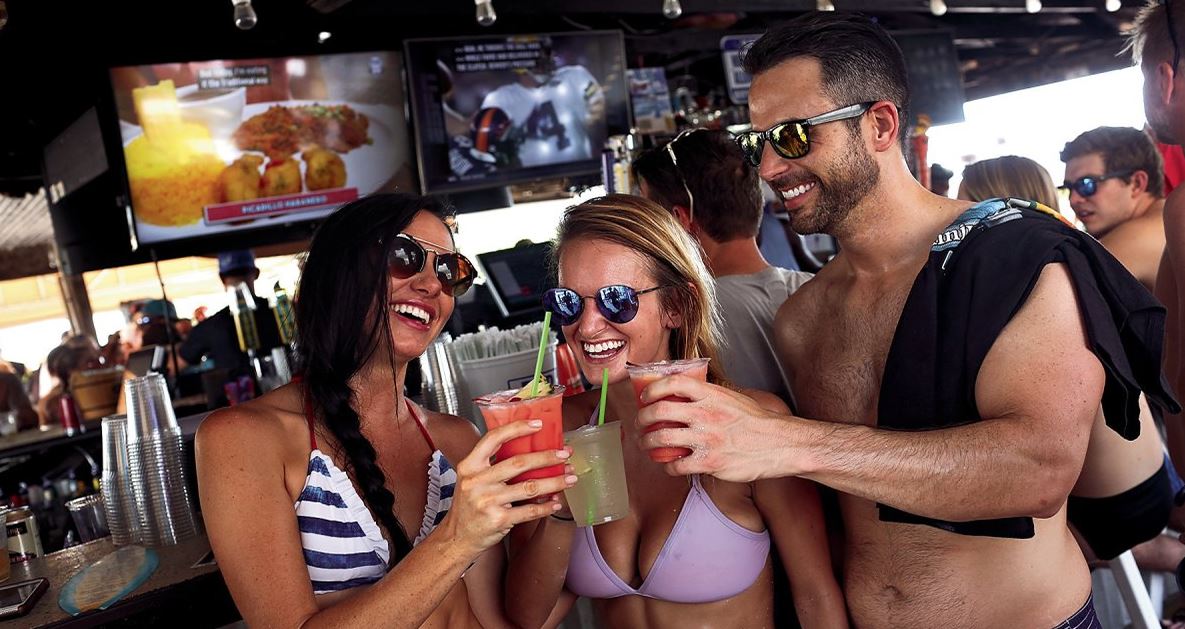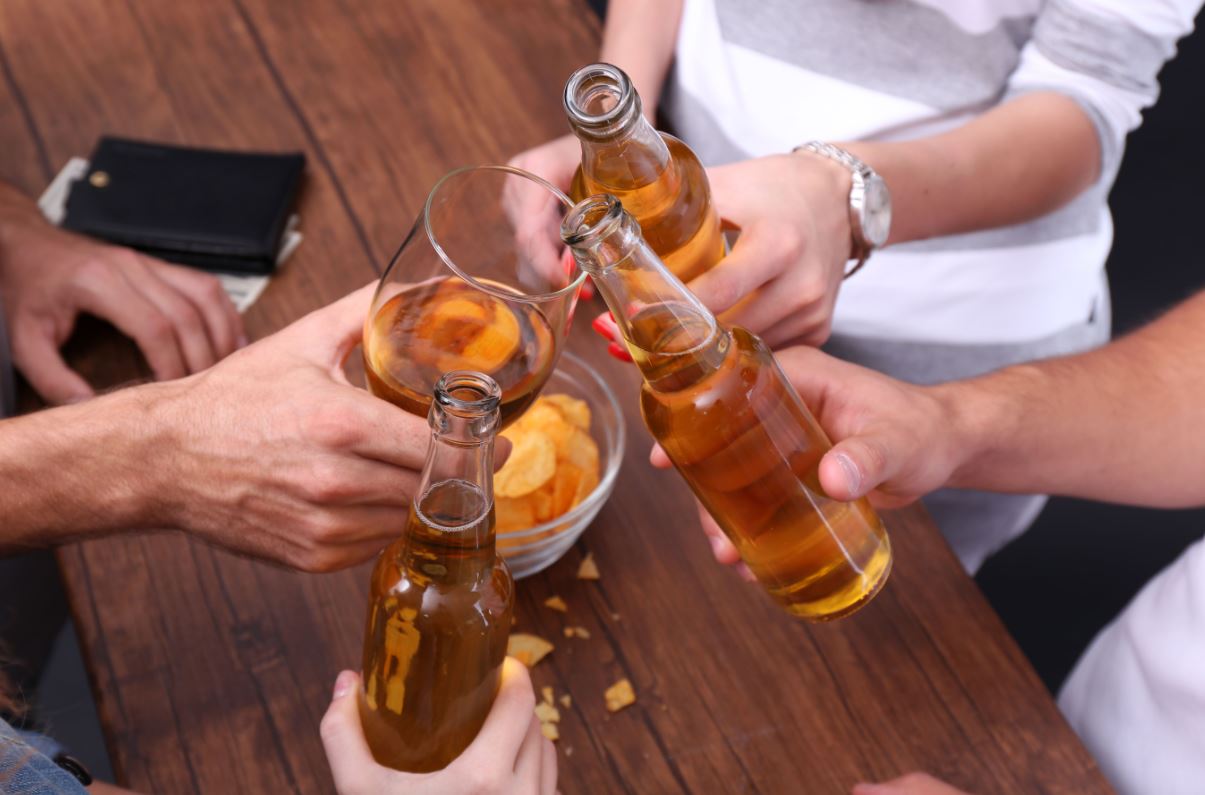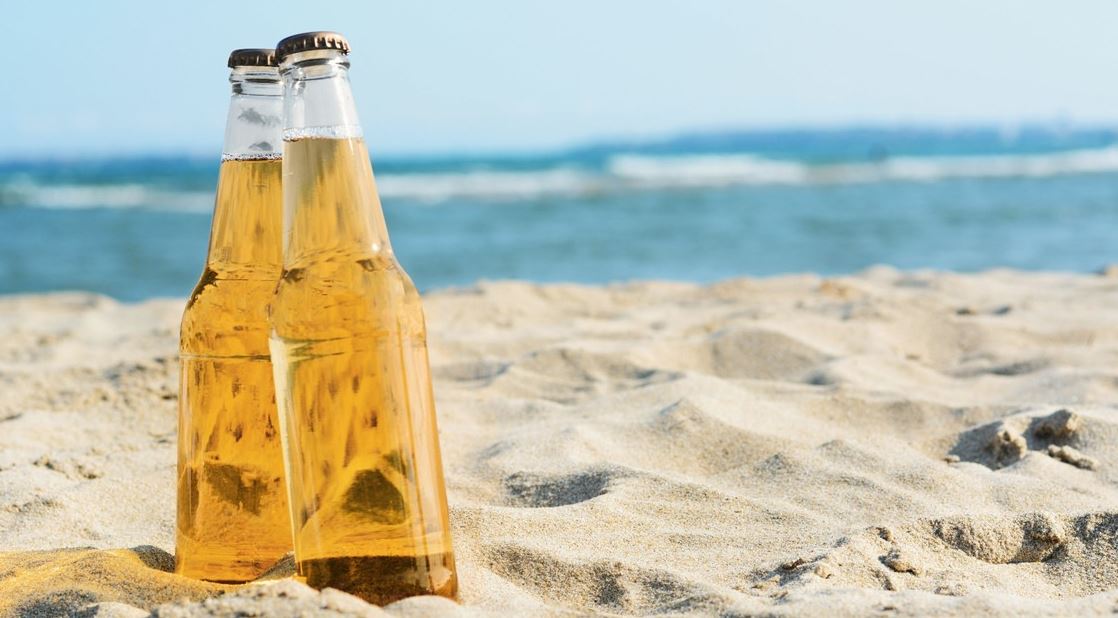Understanding Drinking Customs and Regulations The Drinking Age in Costa Rica Explained
Costa Rica, a jewel in Central America, is renowned for its breathtaking landscapes, rich biodiversity, and vibrant culture. With its pristine beaches, lush rainforests, and bustling cities, it has become a top destination for tourists seeking adventure, relaxation, and a taste of Latin American charm. However, to ensure a safe and enjoyable experience, it is crucial for visitors to understand and respect local customs and laws, particularly those related to alcohol consumption, such as the drinking age in Costa Rica.
In Costa Rica, the culture surrounding drinking is an integral part of social interactions and celebrations. Yet, like any country, it has specific regulations that govern the sale and consumption of alcohol. Being aware of these rules, including the legal drinking age, is essential not only for staying within the bounds of the law but also for ensuring personal safety and a positive travel experience.
This essay provides a comprehensive guide to the drinking customs and laws in Costa Rica. It will cover the legal drinking age, which is a critical aspect for tourists to understand before indulging in the local nightlife. Additionally, it will outline the dos and don’ts of drinking in Costa Rica, offering practical advice on how to enjoy alcoholic beverages responsibly and respectfully. The essay will also delve into local regulations about drinking, such as where and when alcohol can be purchased and consumed, as well as the penalties for violations like drunk driving.
By understanding these aspects, tourists can fully appreciate Costa Rica’s unique culture and hospitality while ensuring their visit is safe and enjoyable. Whether you are savoring a local beer on the beach or enjoying a cocktail at a bar, being informed about the local drinking customs and laws will enhance your overall travel experience in this beautiful country.
1. The Legal Drinking Age in Costa Rica
In Costa Rica, the minimum legal drinking age is 18 years old. This age requirement is strictly enforced across the country to ensure that young adults consume alcohol responsibly. The rationale behind setting the legal drinking age at 18 is multifaceted, involving both health and societal considerations.
One of the primary reasons for this age restriction is to safeguard the health of young individuals. Scientific research indicates that the human brain continues to develop into the early twenties, and consuming alcohol before this development is complete can have detrimental effects on cognitive functions and decision-making abilities. By setting the legal drinking age at 18, Costa Rica aims to minimize these potential health risks.

Moreover, the age limit helps to instill a sense of responsibility among young adults. At 18, individuals are generally considered mature enough to make informed choices about alcohol consumption. This legal framework also aligns with other age-related responsibilities and rights in Costa Rica, such as voting and entering into contracts, thereby promoting a consistent standard of adult behavior.
When purchasing alcohol in Costa Rica, it is mandatory to present identification to verify age. This rule is enforced rigorously, particularly if the buyer appears to be near the minimum drinking age. Vendors are required by law to ask for ID to ensure compliance with the legal drinking age regulations.
Accepted forms of identification include passports, driver’s licenses, and other government-issued IDs that clearly display the holder’s date of birth. Tourists should be prepared to show their ID when buying alcohol, whether in a supermarket, bar, restaurant, or other licensed establishment.
Carrying an accepted form of identification is not only a legal requirement but also a practical measure to avoid potential misunderstandings or legal issues. It is advisable for tourists to keep their passport or a photocopy of it handy, as it is the most universally recognized form of identification. In some cases, a driver’s license from the tourist’s home country may be accepted, but having a passport on hand is the safest bet.
By enforcing strict ID checks, Costa Rica aims to prevent underage drinking and ensure that alcohol is consumed responsibly. This practice helps maintain public order and safety, reducing the likelihood of alcohol-related incidents involving minors.
In conclusion, understanding and adhering to the legal drinking age and identification requirements in Costa Rica is essential for both residents and tourists. These regulations are in place to protect young individuals and promote responsible alcohol consumption. Tourists should respect these laws to enjoy their stay in Costa Rica without any legal complications. Whether you are savoring a local beer on the beach or enjoying a night out in the city, being mindful of the legal drinking age and ready to present valid ID will ensure a smooth and enjoyable experience.
2. Dos When Drinking in Costa Rica
Costa Rica’s drinking culture is a fascinating blend of European traditions and local customs. Social drinking is a common part of life, especially during festivals, family gatherings, and social events. It’s not uncommon to see people enjoying a leisurely drink in the company of friends and family. However, it’s important to be mindful of the cultural nuances that dictate respectful behavior. For example, overly loud or rowdy behavior might be frowned upon, particularly in more traditional or rural areas. Emulating the local etiquette will help you blend in and be appreciated as a considerate guest.

Costa Rica’s tropical climate means that staying hydrated is crucial, especially when consuming alcohol. The hot and humid weather can easily lead to dehydration, which can be exacerbated by drinking alcoholic beverages. To stay safe and healthy, balance your alcohol intake with plenty of water. A good rule of thumb is to drink a glass of water for every alcoholic beverage you consume. This practice not only helps prevent dehydration but also ensures that you can enjoy your drinks without the adverse effects of excessive alcohol consumption in a hot climate.
Responsible drinking is key to having a good time while ensuring your safety and the well-being of others. Costa Rica enforces strict laws regarding alcohol consumption, including penalties for public drunkenness and drunk driving. It’s important to know your limits and consume alcohol in moderation. Drinking responsibly means being aware of your alcohol tolerance and avoiding behaviors that could lead to accidents or altercations. Always plan your transportation ahead of time if you intend to drink, and consider using taxis or rideshare services to get back to your accommodation safely.
In Costa Rica, tipping is appreciated even though a 10% service charge is typically included in restaurant bills. Tipping bartenders and waitstaff an extra amount for excellent service is a kind gesture that goes a long way. A small tip can show your gratitude and ensure you receive good service throughout your stay. While tipping isn’t obligatory, it’s a part of the local hospitality culture and is often welcomed.
While some establishments in tourist areas might accept US dollars, it’s generally better to use the local currency, the Costa Rican colón. Using colónes can help you avoid unfavorable exchange rates and ensures smoother transactions. It’s also a sign of respect for the local economy. You can easily exchange money at banks or use ATMs to withdraw colónes. Having local currency on hand is particularly useful in smaller towns and rural areas where US dollars might not be accepted.
As with any travel destination, it’s important to keep your valuables secure when out and about. When enjoying Costa Rica’s nightlife, make sure to keep essential documents like your passport, wallet, and phone in a safe place. Avoid carrying large amounts of cash and consider using a money belt or a secure bag. If you’re going to a beach or an open-air venue, use waterproof and theft-proof bags to protect your belongings.
Knowing a few basic Spanish phrases can greatly enhance your interactions and experiences in Costa Rica. Simple words and phrases like “Gracias” (Thank you), “Por favor” (Please), and “Una cerveza, por favor” (A beer, please) can make a big difference. Locals appreciate the effort to speak their language, and it often leads to more positive and friendly interactions. Even if you’re not fluent, attempting to communicate in Spanish shows respect for the local culture and can help you navigate social situations more smoothly.
In summary, by respecting local customs, staying hydrated, drinking responsibly, tipping generously, using local currency, keeping valuables safe, and speaking some basic Spanish, you can fully enjoy the vibrant drinking culture of Costa Rica while ensuring a safe and pleasant experience.
3. Don’ts When Drinking in Costa Rica
Costa Rica has strict laws against drunk driving, reflecting the country’s commitment to road safety. If you’re caught driving with a blood alcohol concentration exceeding 0.05%, you may face severe penalties, including hefty fines and even jail time. For instance, a fine can be as high as $410, and in more serious cases, imprisonment up to three years. It’s essential to plan your transportation in advance if you intend to drink. Use taxis, rideshare services, or arrange for a designated driver to ensure you and others remain safe.

In Costa Rica, public consumption of alcohol is prohibited. This means you cannot walk around with open containers of alcohol in public spaces, such as streets, parks, and beaches. This regulation helps maintain public order and prevents disruptive behavior in community areas. Alcohol should only be consumed in licensed premises like bars, restaurants, and designated event spaces. Abiding by this law will help you avoid fines and ensure a respectful and enjoyable experience for everyone.
To protect yourself from potential harm, never leave your drink unattended. This precaution reduces the risk of someone tampering with your beverage, which can lead to dangerous situations such as spiking. If you need to step away from your drink, either finish it or discard it. Always keep an eye on your drink, and if you’re with friends, look out for each other’s beverages as well. This simple habit can prevent a host of problems and ensure you have a safe night out.
Alcoholic beverages in Costa Rica can vary significantly in their alcohol content. Local drinks, such as ‘guaro,’ can be much stronger than what you might be used to. It’s important to drink in moderation and be cautious when trying new beverages. Start slowly, especially with unfamiliar drinks, and always be aware of how much alcohol you’re consuming. This approach will help you avoid overconsumption and its associated risks, such as impaired judgment and health issues.
Theft can be a concern in any tourist destination, and Costa Rica is no exception. Leaving valuables in your car, especially in visible areas, can attract thieves. Always take your important items with you or store them securely out of sight in the trunk or a locked glove compartment. Be particularly vigilant in areas with a high concentration of bars and stores selling alcohol. Taking these precautions will help protect your belongings and give you peace of mind while enjoying the nightlife.
Serving or supplying alcohol to anyone under the age of 18 is illegal in Costa Rica. If you are caught doing so, you may face serious legal consequences. This law is strictly enforced to protect minors from the harmful effects of alcohol. Always check IDs if there’s any doubt about someone’s age, and adhere to this regulation to avoid penalties. Ensuring that minors do not have access to alcohol is a responsibility shared by everyone, from individuals to businesses.
While it’s easy to stick to familiar drinks, exploring local beverages can enhance your cultural experience. Costa Rica offers a variety of unique alcoholic drinks, such as the traditional spirit ‘guaro,’ made from sugar cane. Trying local beers like Imperial or Pilsen is also highly recommended. Sampling these beverages gives you a taste of the local flavor and can be a fun and memorable part of your visit. However, remember to consume these drinks in moderation to fully enjoy the experience.
After a night out, it’s crucial to use legitimate transportation services. Illegal or “pirate” taxis can be unsafe and unregulated. Instead, opt for registered taxis, which are usually red with a yellow triangle on the side, or use reliable rideshare services like Uber. This ensures that you reach your destination safely and without incident. Using official transportation services not only protects you from potential scams or dangers but also supports the local economy and regulated businesses.
By following these guidelines and avoiding these common pitfalls, you can ensure a safe, enjoyable, and respectful drinking experience in Costa Rica.
4. Local Regulations About Drinking in Costa Rica
In Costa Rica, the sale of alcoholic beverages is regulated to ensure that alcohol is only sold by authorized vendors and within licensed premises. These vendors include liquor stores, supermarkets, bars, restaurants, and other establishments that have obtained the necessary licenses to sell alcohol. The licensing process ensures that sellers adhere to local laws and maintain standards that promote responsible alcohol consumption. When purchasing alcohol, it’s important to do so from these authorized vendors to guarantee the legality and quality of the products you are buying.

Costa Rican law prohibits the consumption of alcohol in public spaces. This means that it is illegal to drink alcohol on the streets, in parks, on beaches, and in other public areas. The rationale behind this restriction is to maintain public order and minimize disturbances that can arise from public drinking. Violating this law can result in fines or other legal repercussions. Therefore, it’s essential to consume alcohol only in private settings or within the confines of licensed establishments, such as bars, restaurants, and hotels, where drinking is permitted.
Costa Rica enforces strict penalties for drunk driving to enhance road safety and protect both drivers and pedestrians. The legal blood alcohol concentration (BAC) limit is 0.05%. If you are found to be driving with a BAC above this limit, you face severe consequences. For a BAC between 0.05% and 0.075%, the fine is approximately $410. If your BAC exceeds 0.075%, the penalties are even more stringent and can include jail time of up to three years. In addition to fines and imprisonment, drunk drivers can also face the suspension of their driver’s license. These strict measures reflect Costa Rica’s commitment to preventing alcohol-related accidents and ensuring the safety of everyone on the road.
The sale of alcohol in Costa Rica is subject to specific regulations, particularly concerning the hours during which alcohol can be sold. Generally, alcohol sales are allowed from 8:00 AM to midnight. However, these hours can vary depending on the establishment and the municipality. During certain holidays, such as Holy Week, alcohol sales may be restricted or entirely prohibited. These regulations are designed to promote responsible drinking and reduce alcohol consumption during times when excessive drinking is more likely to occur. Tourists should be aware of these restrictions to avoid inconvenience and to plan their purchases accordingly.
In summary, understanding the local regulations about drinking in Costa Rica is crucial for a safe and lawful experience. By purchasing alcohol from authorized vendors, avoiding drinking in public spaces, adhering to drunk driving laws, and being aware of alcohol sales regulations, visitors can enjoy Costa Rica’s vibrant culture while respecting its legal framework. These regulations are in place to ensure public safety and order, and abiding by them contributes to a positive and enjoyable stay in this beautiful country. Whether you’re enjoying a drink at a local bar or purchasing a bottle of wine from a supermarket, being informed about these regulations helps ensure a smooth and pleasant experience.
5. Tips to Drink Responsibly in Costa Rica
When in Costa Rica, it’s crucial to purchase alcohol from licensed vendors to ensure you’re getting legitimate and safe products. Licensed vendors include supermarkets, liquor stores, and establishments like bars and restaurants that have the appropriate permits. This not only guarantees the quality of the alcohol but also ensures that you are complying with local laws. Avoid buying alcohol from street vendors or unlicensed sellers, as these sources may not adhere to safety standards and could sell counterfeit products.
Understanding and respecting local customs is vital when drinking in Costa Rica. The country has a rich culture influenced by European traditions and local practices, and this extends to its drinking customs. Social drinking is common, especially during festivals and family gatherings. However, it’s important to behave respectfully and considerately, avoiding loud or disruptive behavior. Demonstrating an understanding of and respect for local customs will make your experience more enjoyable and endear you to the local people.
Alcohol sales in Costa Rica are regulated by specific hours. Generally, alcohol can be sold from 8:00 AM to midnight, though this can vary by location. Additionally, during certain holidays, like Holy Week, there may be restrictions or complete bans on alcohol sales. It’s important to be aware of these regulations to avoid inconvenience. Check with local vendors or hotel staff to understand the specific rules that apply during your visit.
Costa Rica offers a variety of unique and delicious alcoholic beverages that reflect its culture and traditions. Popular local drinks include ‘guaro,’ a clear spirit made from sugarcane, and local beers such as Imperial and Pilsen. Exploring these options can enhance your cultural experience. However, always consume these beverages in moderation to enjoy them safely and responsibly.
Staying updated on regional regulations and licensing acts is essential for responsible drinking. Regulations can vary by region and may change, so it’s important to stay informed about any new laws or restrictions. Local news sources, your hotel, or local authorities can provide the latest information. Being well-informed will help you avoid legal issues and ensure a smooth experience.
Leveraging local knowledge can be incredibly helpful. Locals can offer advice on the best places to buy alcohol, the best local drinks to try, and any unwritten rules or customs you should be aware of. They can also provide insights into current regulations and safe practices. Don’t hesitate to ask locals for guidance—they are often happy to help and can enhance your overall experience.
Costa Rica has strict laws against the possession, consumption, and trafficking of illegal drugs. Violating these laws can result in severe consequences, including imprisonment. It is crucial to avoid any involvement with illegal substances to ensure your safety and compliance with local laws. Stick to legal and regulated alcohol to enjoy your time in Costa Rica responsibly.
Always have essential contact information readily available in case of emergencies. This includes the local emergency number (911 in Costa Rica), contact details for your hotel or accommodations, local medical facilities, and the nearest embassy or consulate. Having these contacts can provide peace of mind and ensure you are prepared for any situation. Additionally, keep the contact numbers of local police stations handy for quick access in emergencies.
By following these tips, you can drink responsibly and enjoy all that Costa Rica has to offer while ensuring your safety and respecting local customs and laws. Responsible drinking contributes to a positive travel experience and helps you fully appreciate the vibrant culture and hospitality of this beautiful country.
In conclusion, understanding and adhering to Costa Rica’s drinking customs and regulations is essential for a safe and enjoyable experience. The legal drinking age in Costa Rica is 18 years old, and it’s important to carry a valid ID to verify your age when purchasing alcohol. By following the dos and don’ts, such as respecting local customs, staying hydrated, drinking responsibly, tipping appropriately, using local currency, keeping valuables safe, and speaking some basic Spanish, you can navigate the local drinking culture smoothly.
Additionally, being aware of local regulations about where and when you can buy and consume alcohol, as well as the strict penalties for drunk driving, will help you stay within the bounds of the law. Understanding these regulations ensures that you avoid potential legal issues and contribute to maintaining public order.
Responsible drinking is paramount. Know where to buy alcohol from licensed vendors, respect local customs, be aware of restricted sale hours, explore local alcoholic options in moderation, stay informed about regional regulations, seek local guidance when needed, avoid illegal substances, and always carry emergency contact information.
Respecting Costa Rica’s laws and customs not only ensures your safety but also enhances your travel experience by allowing you to immerse yourself in the vibrant local culture. Enjoying Costa Rica’s rich traditions and hospitality responsibly will leave you with memorable experiences and a deeper appreciation for this beautiful country.
Age -Consent Age Washington State A Comprehensive Guide to Sexual Offenses and Reporting Procedures
Chloe Guidry age Rising Star in TV and Film – A Detailed Exploration of Her Journey and Achievements
Makeiva Albritten Age and More A Deep Dive into Her Career, Personal Life, and Net Worth
Tony Evans’ New Chapter Discover Carla Crummie Age, Career, and More
Bo Bassett Age and His Father’s Journey Advocating for Empowering Education and School Choice
Navigating the Complexities of Age of Consent Washington State Legal Implications and Consequences
Crip Mac age A Comprehensive Look at the Rapper’s Life and Career